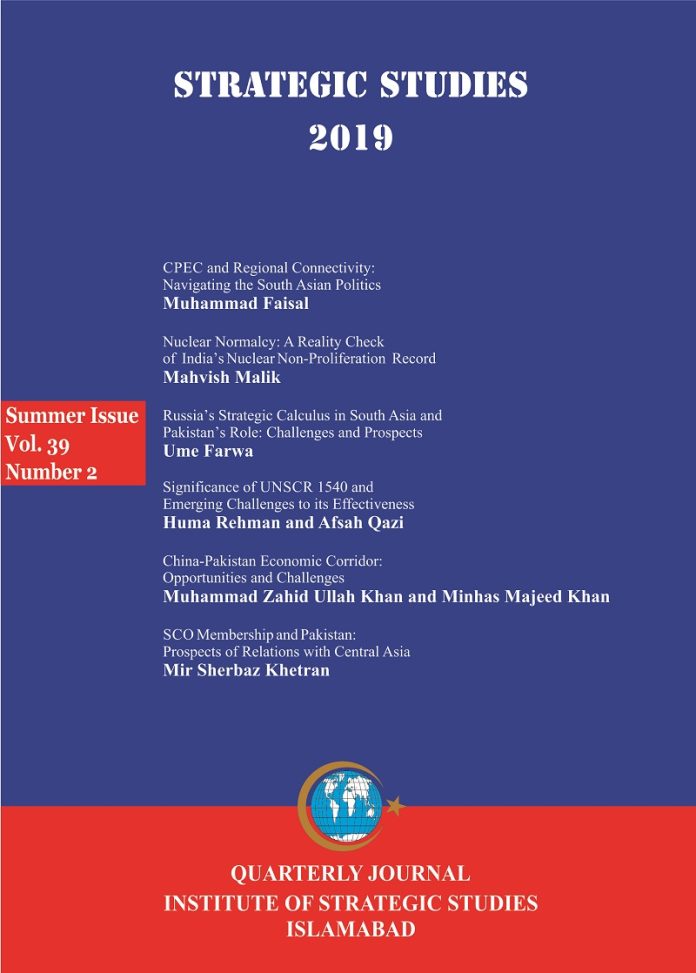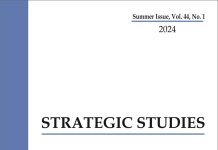Abstract
India’s much-hyped nuclear non-proliferation record has numerous loopholes that are usually overlooked. In the Nuclear Suppliers Group (NSG), the Participating Governments (PGs) tend to ignore India’s nuclear proliferation activities in Europe, the Middle East, Japan and the US. In the NSG, the US-led bloc favours India and sets a discouraging precedent of a discriminatory approach and preferential treatment. Moreover, this trend highlights how a state’s influence instead of its credentials, become the deciding factors when it strives for acquiring global nuclear normalcy. Similarly, in the international nuclear non-proliferation regime, defining ‘nuclear normalcy’ is embedded in the strategic interests of powerful Nuclear Weapon States (NWS) known as P-5. This political debate on nuclear normalcy has overshadowed both legal and technical grounds for categorising any state as nuclear ‘responsible’ or ‘mainstreaming’ it in the global nuclear regime. In South Asia, nuclear normalcy is linked with the membership of NSG which is seen as a criterion to define any nuclear state as a ‘responsible nuclear state.’ In this context, this paper examines India’s claim to ‘nuclear normalcy’ and its implications for Pakistan.














